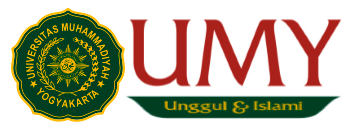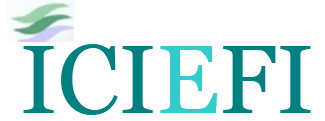Islamic Business Ethics Practice among Muslim Entrepreneurs in Kano Metropolis, Nigeria
Abstract
Keywords
Full Text:
PDFReferences
Abdu, A. (2018). The Commander Hisbah Board Commission Dawakin Tofa local government Kano state, Nigeria. Official report.
Ahmad, S. A. (2009). Business ethics in Islam: The glaring gap in practice. International Journal of Islamic and Middle Eastern Finance and Management, 2(4), 278-288.
Bartlett, J. E., Kottrlik, J. W., & Higgins, C. C. (2001). Determining appropriate sample size in survey research. Technology, Learning and performance Journal, 19(1), 345-421.
Beekun, R. I. (1996). Islamic business ethics. University of Nevada, USA: The International Institute of Islamic thought.
Beekun, R. I. (2012). Character centred leadership: Muhammad (PBUH) as an ethical role model for CEOs. The Journal of Management Development, 31(10), 1003-1020.
Burji, A. A. (2018). The deputy director government health office; Public health inspection division, ministry of health Kano state. Official report.
Chin, W. (1998). Issues and opinion on Structural Equation Modelling. MIS Quarterly, 22(1), 7-16.
Emmoglu, E. (2011). A Structural Equation Model examining the relationships among Mathematics achievement, attitudes toward statistics, and statistics outcomes, a thesis submitted to the graduate school of social sciences of middle east technical university, Ankara, Turkey.
FAMIS, (2017). Profile of Dawanau International grains market Kano, Friendly Agricultural Market Information Services (FAMIS) a division of friendly agro-allied and logistics company Ltd.
Gefen, D., Straub, D., & Boudreau, M. (2000). Structural Equation Modelling techniques and regression: guidelines for research practice. Communications of the association for information systems, 7(7), 1-78.
Hair, J. F., Black, W. C., Babin, B. J., Anderson, R. E., & Tatham, R. L. (2006). Multivariate data analysis (6ed.). New Jersey: Pearson Prentice Hall.
Hamid, A.W. (1999). Islam the natural way. London: MELS.
Husin, W. N. W., & Kernain, N. F. Z. (2019). The influence of individual behaviour and organizational commitment towards the enhancement of Islamic work ethics at Royal Malaysian Air Force. Journal of Business Ethics,1(1) 1-11.
Husna, F. S., & Fuaad, M. (2017). A review of Islamic work ethics and spirituality concepts in service industry Journal of Nusantara Studies, 2(2), 282-294.
Imam, A., Abbasi, A. S., & Muneer, S. (2013). The impact of Islamic work ethics on employee performance: testing two models of personality X and personality Y. Science International (Lahore), 25(3), 611-617.
Iqbal, M. M., & Islam, N. B. (2015). Comparative analysis of business ethics in Islam and economics perspective. Journal of Contemporary Issues in Business Research, 4(3), 56-70.
Ismail, A. G. (2006). Paradigm shift from capitalism to Islamic economics. Work Pap. Univ. Kebangs. Malaysia.
Manan, S. K., Kamaluddin, N., & Puteh Salin, A. S. A. (2013). Islamic work ethics and organizational commitment: Evidence from employees of banking institutions in Malaysia. Pertanika Journal of Social Science and Humanities, 21(4), 1471-1489.
Mohammed, A. (2005). The relationship between Islamic rules and accountants’ ethics. Performance: testing two models of personality X and personality Y. Journal of Business Ethics, 83(2), 147.
Ngurah, G. O. W., Kaderi, S. W., Sufiati, M. P., & Toha, M. (2014). Measuring Islamic business ethics within Indonesia Islamic banks. Gjat www.gjat.my, 4(5), 345-421.
Nizam, S. B. S., Binti, S. B., Safizal, M. A., & Osman, A. (2015). The effect of Islamic work ethics on organizational commitment. 7th International Economics & Business Management Conference, 5th & 6th October 2015.
Rachels, J., & Rachels, S. (1993). The elements of moral philosophy. New York: McGraw.
Rahman, A. (1995). Islam: Ideology and the way of life. Kuala Lumpur: A.S. Noordeen.
Umar, S. R. (2018). The Commender hisbah board commission fagge local government Kano State, Official report.
Yakasai, U. Z. (2018). The chairman amalgamated traders association zone 2. Singer market, Kano.
Yeboah-Assiamah, E. (2014). Business ethics in Islam: Assessing traders’ understanding of Islamic work ethics; perspectives of muslim market women in Kumasi Central, Ghana. journal of business and economy, 9(1), 1.
Zainudin, A. (2014). A Handbook on structural equation modelling. Bandar Bangi, Selangor, MPWS Rich Resources.
DOI: https://doi.org/10.18196/ijief.3233
Refbacks
- There are currently no refbacks.
Copyright (c) 2020 International Journal of Islamic Economics and Finance (IJIEF)

This work is licensed under a Creative Commons Attribution-ShareAlike 4.0 International License.
International Journal of Islamic Economics and Finance (IJIEF)
International Program for Islamic Economics and Finance
Department of Economics
Faculty of Economics and Business
Universitas Muhammadiyah Yogyakarta
Pascasarjana Building, Ground Floor
Jl. Brawijaya (Ringroad Selatan), Kasihan, Bantul
D.I. Yogyakarta 55183, INDONESIA
Official email: ijief@umy.ac.id












1.jpg)